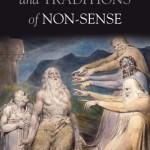We run our website the way we wished the whole internet worked: we provide high quality original content with no ads. We are funded solely by your direct support. Please consider supporting this project.
What is the significance of 1 Samuel 23:9–13?
“David heard that Saul knew that he was hiding in Keliah. Saul was seeking to kill David, so David wisely consulted the Lord as to what he should do. David said, ‘O Lord, the God of Israel, your servant has heard that Saul seeks to come to Keliah, to destroy the city on my account. And now, will Saul come down as your servant has heard? O Lord, the God of Israel, I beseech you, tell your servant.’ The Lord said, ‘He will come down.’ Then David said, ‘Will the men of Keliah surrender me and my men into the hand of Saul?’ The Lord said, ‘They will surrender you.’ Then David and his men…set out and left Keliah.”
This passage reveals that God’s foreknowledge is not always about what will certainly happen: it is often (if not usually) about what might happen. The Lord tells David that Saul will come to Keliah and that the people of Keliah will deliver him over. But David doesn’t consider this a declaration of an unalterable future such as if he believed that God had a sort of “crystal ball” perspective on the future. For he immediately attempts to alter what the Lord just told him would happen! He leaves Keliah and thus avoids what God foretold would happen.
Biblical authors don’t generally assume that God’s declarations about the future are unalterable. Indeed, they sometimes chastise people for drawing just this conclusion (cf. Jer. 18:12ff). If the classical understanding of God’s foreknowledge is correct, however, the future is unalterable! If God tells us what is coming in the future, it is no use to try to change it! The fact that the Word of God encourages us not to think this way suggests that the future is not exhaustively settled in reality, and thus not in the mind of God.
Some classical theologians attempt to explain verses like this by appealing to “middle knowledge.” In this view, God eternally knows not only what will certainly occur, but also what would occur under all other conceivable circumstances. Aside from the logical difficulties which attend to this view (and in my estimation there are many), there is nothing in this text which suggests God was certain what would ultimately transpire—and that it would be the opposite of what he told David would transpire (“he will come down,” “they will surrender you…”). From an Open Theist’s point of view, God knew and told David what was going to happen if the present state of affairs didn’t change. David set about to alter this decreed future by altering the present state of affairs: he left Keliah. But again, there is nothing to require us to believe that God was certain that what he told David would happen actually wouldn’t come to pass.
Category: Q&A
Tags: Open Theism, Q&A
Topics: Open Theism
Verse: 1 Samuel 23
Related Reading

What is the significance of Ezekiel 22:29–31?
The Lord says he “sought for” someone to stand in the breech for Israel “but I found none.” Hence Israel experienced the wrath of God. If everything that shall ever come to pass is eternally fixed in the divine mind, God would have foreknown that no one would respond to his call for a Moses-like…

Why did God create me to be a pedophile?
Question: Since the first time I experienced a sex drive it’s been directed towards little children. I’ve never acted on this, for I know it’s wrong. But it torments me. Why would God created me with pedophile cravings? Answer: I’m so sorry for your condition and greatly respect the fact that you have committed yourself…

God Clearly Can, So Why Doesn’t He? (podcast)
Leah expects more from God. Should she? Greg confronts God’s inactivity and underperformance. Episode 510 http://traffic.libsyn.com/askgregboyd/Episode_0510.mp3

God of Sense and Traditions of Non-Sense
As the title suggests, in his book, God’s Problem: How The Bible Fails to Answer Our Most Important Question – Why We Suffer, Bart Ehrman argues that the Bible has nothing compelling to say about the problem of evil. Well, I just put down a beautifully written four-hundred and fifty page book that compellingly argues…

Podcast: Are We REALLY Free if God is Going to Ultimately Trump Our Choices?
Greg looks at the nature of freewill, specifically: how God’s promises constricts human free will. http://traffic.libsyn.com/askgregboyd/Episode_0070.mp3

How do you respond to Genesis 45:5; 50:20?
Joseph said to his brothers, “…now do not be distressed, or angry with yourselves, because you sold me here; for God sent me before you to preserve life,” (cf. v. 7). Joseph later says, “Even though you intended to do harm to me, God intended it for good, in order to preserve a numerous people…”…
